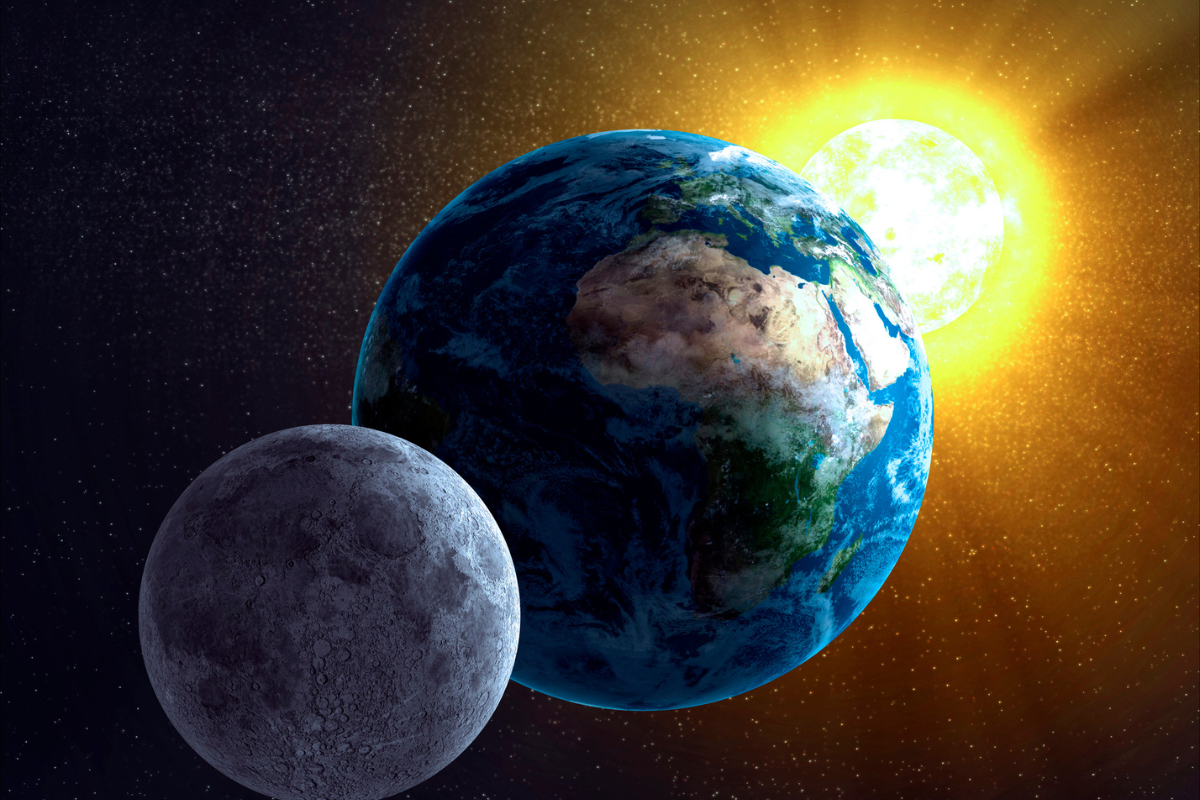January 8 marks Earth Rotation Day, celebrating our planet’s spin. The Earth’s rotation defines a day’s length and shapes the environment, timekeeping, and our place in the universe. However, NASA findings suggest human-made projects like China’s Three Gorges Dam subtly affect Earth’s rotation.
Earth Rotation Day history
Earth Rotation Day, celebrated on January 8, honours the discovery and understanding of the Earth’s rotation on its axis. The day serves as an opportunity to appreciate the Earth’s dynamic processes and the role its rotation plays in shaping life, from timekeeping to weather patterns.
The Earth rotates on its axis, an imaginary line through the North and South Poles. It takes about 24 hours for a full rotation, defining a day’s length. This rotation causes the day-night cycle and influences weather patterns, ocean currents, and the planet’s magnetic field.
The Earth’s rotation concept was proposed in ancient times, but gained scientific validation during the Renaissance. Polish astronomer Nicolaus Copernicus first suggested that the Earth rotates on its axis and revolves around the Sun. This theory was confirmed through Galileo Galilei’s observations of Jupiter’s moons in 1610.
In 1851, French physicist Léon Foucault conducted an experiment demonstrating Earth’s rotation. By hanging a large pendulum in the Pantheon in Paris, Foucault showed that the pendulum’s motion plane appeared to rotate over time due to the Earth’s spin.
While Earth’s rotation is a constant process, human activities are subtly impacting it. One such impact comes from China’s Three Gorges Dam, one of the largest hydropower projects. According to a NASA report, the dam has caused a slight change in the Earth’s rotation, slowing it down by 0.06 microseconds.
This small change results from the redistribution of mass within Earth’s surface due to the dam’s massive water reservoir. The stored water alters the planet’s mass distribution, affecting the Earth’s moment of inertia—a term describing how mass is spread relative to the rotation axis.
The dam’s reservoir holds water that affects Earth’s rotational speed, albeit slightly. As the water accumulates, it shifts the mass near the Earth’s surface, resulting in a slight slowing of the planet’s rotation.
Why does this matter?
While the change in Earth’s rotation is tiny, it provides insight into how large-scale human infrastructure projects influence the planet’s natural systems. As NASA’s Benjamin Fong Chao explains, even small changes can have measurable effects, offering scientists a deeper understanding of the relationship between human-made structures and the Earth’s dynamic processes.
This phenomenon highlights the interconnectedness of natural forces and human activities. The Earth’s rotation, a seemingly simple and constant process, is influenced by various natural and man-made factors that shape the planet’s behaviour over time.
Earth Rotation Day is a chance to reflect on the forces driving our planet’s motion and the importance of scientific discoveries in understanding Earth and human actions’ lasting impact. Whether it’s timekeeping precision, large infrastructure projects, or changing weather patterns, understanding Earth’s rotation offers a deeper appreciation for the forces at play.
As we develop technologies and infrastructure, it is crucial to recognize how our actions influence the natural world. The slowing of Earth’s rotation due to the Three Gorges Dam, though slight, serves as a reminder that even colossal human projects can affect the processes that shape life on Earth. By celebrating Earth Rotation Day, we can foster a greater appreciation for the science behind our planet’s motion and the balance that sustains life.
Support us to keep independent environmental journalism alive in India.
Keep Reading
Watch: Kashmir experiences first snowfall of season after dry spell
Amarnath Yatra: Tackling rising death toll from extreme weather events
Tourists arrival in Kashmir break records, a need to regulate it?
From tourist paradise to waste wasteland: Sindh River Cry for help
Follow Ground Report on X, Instagram and Facebook for environmental and underreported stories from the margins. Give us feedback on our email id greport2018@gmail.com.
Don’t forget to Subscribe to our weekly newsletter, Join our community on WhatsApp, and Follow our YouTube Channel for video stories.






